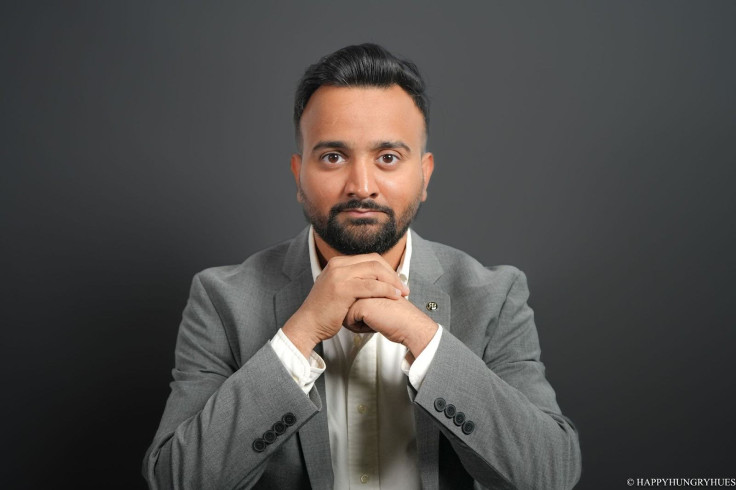Pratik Panchal Is Shaping the Future of Project Scheduling
From Mumbai to Manhattan, Pratik Panchal is redefining how global infrastructure projects are planned and delivered

From his early days as a project engineer in Mumbai to leading scheduling work on infrastructure projects in North America, Pratik Bhikhubhai Panchal has built a career focused on improving how construction projects are planned and managed. He has introduced scheduling methods that integrate technology and align project participants to address various construction challenges.
With a broad and international background, Pratik Bhikhubhai shares his career story, experience, and how he's contributing to the future of project scheduling and construction.
Q: Can you share a bit about your background and what drew you to the world of civil engineering and project scheduling?
A: My career began with a bachelor's degree in civil engineering, followed by a post-graduate diploma in advanced construction management. Early on, I saw how the success of large projects depends on how well thousands of moving parts are coordinated. That interest led me to specialise in project scheduling and controls. Over the past 13 years, I've worked in India, the UAE, Canada, and the United States, managing timelines and risks for projects including high-rise buildings, major infrastructure and marine projects, and tunneling works.
Q: What is your current role, and what are your main responsibilities?
A: I currently serve as lead project scheduler at Dragados USA, a large engineering and construction company in the U.S. I'm responsible for developing and managing the master schedule for large infrastructure projects. This includes combining design, engineering, procurement, and construction tasks into one resource-loaded plan. I monitor progress, identify risks, and adjust timelines to keep the project on track. I also work closely with contractors, design teams, and client to ensure each project phase meets standards and stays on schedule.
Q: How have you contributed to changing the way large construction projects are scheduled and delivered?
A: Over the years, I saw that traditional scheduling tools aren't sufficient to manage modern projects. To solve this, I created several systems, including the Integrated Intelligence Scheduling System (IISS), which uses AI and real-time field data to forecast delays and suggest recovery steps.
I also developed the Stakeholder-Driven Milestone Modeling (SDMM) module. Unlike standard scheduling models, this one includes all stakeholder approval points and decision checkpoints, helping reduce delays from miscommunication. I've also built the Schedule Resilience Engineering (SRE) system, which adds flexibility to the schedule and protects key milestones even during major disruptions.
Q: How do your innovations address current and future challenges in construction?
A: The construction industry faces serious issues like delays, budget overruns, and misaligned communication. My SDMM framework helps by improving how we forecast progress, reducing approval delays, and supporting quicker, data-based decisions. The SRE system allows projects to handle disruptions and new technologies more easily, helping ensure stable, reliable delivery.
Q: What role does technology play in your scheduling work?
A: Technology is vital to my scheduling approach. I use advanced scheduling tools like Primavera P6, Power-BI, AI-based platforms, and data analytics to build and maintain complex timelines. These systems help me monitor progress, identify risks, and automate updates. I also use digital twins and GIS data to connect project schedules to real-time conditions in the field.
Q: How do you empower your team and young engineers?
A: I regularly lead training sessions and workshops focused on practical scheduling skills, commitment-based planning, and continuous improvement, so everyone understands their role and feels confident contributing ideas. By sharing my experiences and encouraging young engineers to ask questions, I help them build technical expertise and leadership skills, preparing them to take on bigger responsibilities in the future.
Q: Have you received any awards, honors, or recognition from professional organisations?
A: Yes, I'm a certified Project Management Professional (PMP) through the Project Management Institute. I also received a Global Recognition Award for Leadership in Project Excellence and AI and was chosen as a judge for the Brandon Hall Group Excellence Awards in the Leadership category. Also chosen as a Judge for Stevie Awards. Additionally, I was honored with an Award for Global Excellence from the Indian Achievers Forum. I serve as an editorial board member for respected international journals.
Q: What is your vision for the future of project management in large-scale infrastructure?
A: I see project management becoming more proactive, data-driven, and collaborative. Schedules will act as live tools that adjust in real time, powered by AI and predictive analytics. I also see stronger links between on-site teams and decision-makers, with everyone working from the same real-time data.
I believe that the industry will continue to move toward smarter, more resilient project delivery, with a focus on continuous improvement and stakeholder trust. My goal is to keep developing and sharing methodologies that not only deliver projects on time but also improve how the industry handles complexity, risk, and collaboration.
Q: What advice do you have for others in your field?
A: Stay open to new ideas and technologies, and always look for ways to improve your processes. Be proactive in identifying risks and flexible in adapting to change. Continuous learning and innovation are essential for long-term success.
Pratik Panchal's track record of delivering complex projects on time, along with his smart scheduling innovations, has set new standards in the construction industry. His leadership, global perspective, and focus on continuous improvement help him advance project management practices and influence the future of infrastructure worldwide.
© Copyright IBTimes 2025. All rights reserved.





















